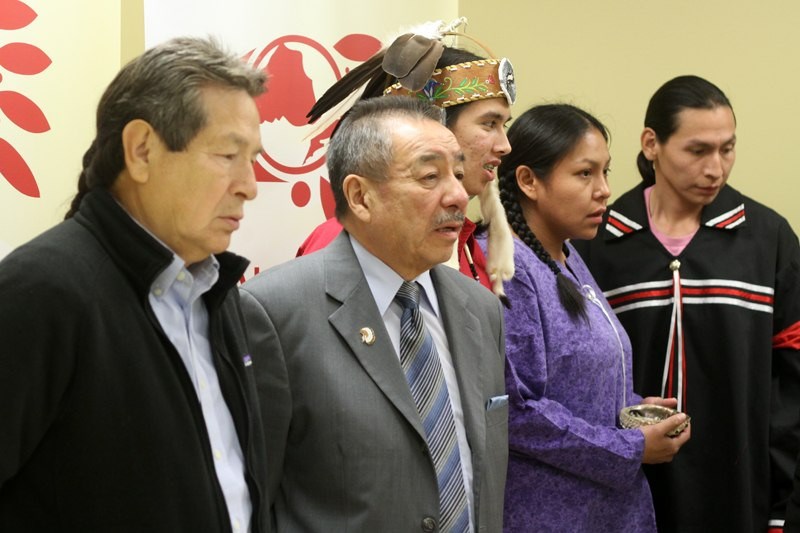Ontario’s First Nations leaders are taking education into their own hands.
During Day 2 of the winter assembly at the Fort William First Nation Community Centre, the Chiefs of Ontario announced Wednesday they will implement their own education system that will include their cultural beliefs and values.
The decision came in the wake of the rejection of the federal government's proposed First Nation Education Act by First Nation groups across the country.
"There's no way in hell they're going to shove this down our throat," said Grand Council Chief Patrick Madahbee of the Anishinabek Nation.
Madahbee said the Conservative government's legislation came out of the blue.
"We have our own solutions. The problem is whatever they've tried hasn't worked," he said.
"Whenever we put something in place it works because we have everything at stake...we don't want to fail our children."
Story continues after video ...
The success of their children is the strongest motivation; Madahbee said they want to see their children grow up to become competitive in the job market and to have their communities build sustainable economies.
"We want our children to grow up strong. We want our children to grow up healthy. We want our children to grow up educated so they can have a chance in this world," he said.
First Nation leaders have been working on implementing their own education system for 18 years; all they need is the financial support of the federal government.
"If we had the financial resources to do it, we'd be able to move instantly," Madahbee said, adding if the government tries to move forward with their First Nation Education Act, they will have a fight on their hands.
"This is the deal breaker here," he said.
Twenty-year-old Quinn Meawasige is a youth representative for the Union of Ontario Indians at the winter assembly and attended school off-reserve where there was a lack of cultural awareness.
"That gap, that thing that's missing is what creates that stigma and the discrimination amongst the non-native and native students. It's not a healthy environment for them to be in to learn. It's just sad. It makes our people - our children and youth - be ashamed of who they are," he said.
Meawasige said a First Nation-run education system is what's needed because they know what's best for their own people.
"Ultimately, if we want to have a strong nation, we've got to be able to have control and jurisdiction over the education of our children and youth. It's essential," he said.
Ontario Regional Chief Stan Beardy said the chiefs and youth are united in their opposition to the First Nation Education Act.
"We cannot afford to be controlled any longer. We cannot be forced into a situation where you have inadequate resourcing to make sure your children have a good future, that they have an opportunity to get educated," said Beardy.
"We've learned from the past policies and legislation with the federal government and other governments that systems designed outside our input just do not work for us."
When treaties were signed 100 years ago, Beardy said First Nations never gave up their right to self-governance or their lands and resources.
Their proposed education system will incorporate their values and philosophies with the standard curriculum.
"We want to try to work with the governments and say 'look, can we have a meaningful dialogue? Can we have a collaborative discussion on this to make sure it works for all of us?'" Beardy asked.
